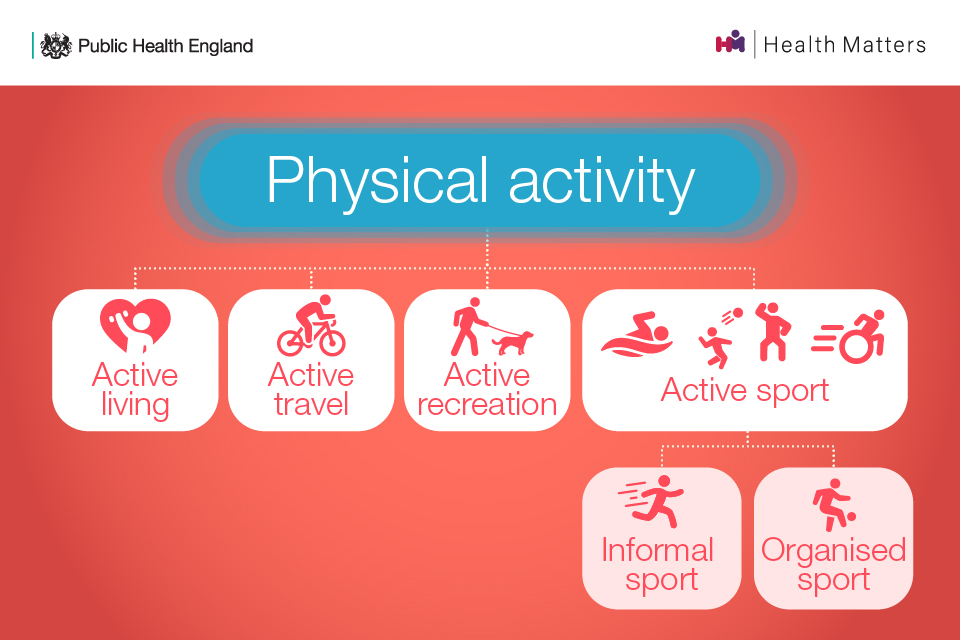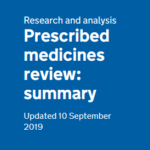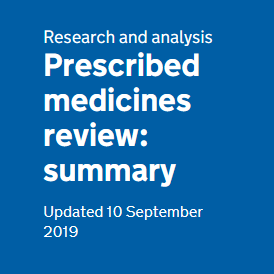 The Kings Fund has produced an explainer on the health of people from ethnic minority groups in England. Whilst this doesn’t include MSK health, it does include several relevant determinants of health including physical activity levels, obesity, healthy diet, socioeconomic inequalities and access to services.
The Kings Fund has produced an explainer on the health of people from ethnic minority groups in England. Whilst this doesn’t include MSK health, it does include several relevant determinants of health including physical activity levels, obesity, healthy diet, socioeconomic inequalities and access to services.
The document concludes that strategies for improving the health of England’s ethnic minority communities need to address the multiple factors that have an impact on their health. It identifies four areas for focus:
- The role of public health and NHS services
- Addressing the wider determinants of health
- Tackling structural racism
- Data
Read the explainer.



 The Office for National Statistics is consulting on a new measure for health in England, recognising that the nation’s health is an asset – as important to the economy and wider society as it is to the individual. The proposed health index not only measures how healthy people are today but also looks at the wider social and economic circumstances that will influence our – and the next generation’s – ability to live healthy lives in the future. Tracking these indicators over time provides the opportunity to finally look beyond GDP as a sole measure of national success.…
The Office for National Statistics is consulting on a new measure for health in England, recognising that the nation’s health is an asset – as important to the economy and wider society as it is to the individual. The proposed health index not only measures how healthy people are today but also looks at the wider social and economic circumstances that will influence our – and the next generation’s – ability to live healthy lives in the future. Tracking these indicators over time provides the opportunity to finally look beyond GDP as a sole measure of national success.… 
 The incidence of MSK conditions, particularly neck and shoulder pain, has gone up during the pandemic. This represents a significant amount of pain that would not have happened without the pandemic changing the way we live and work. Which got me wondering how much of the pre-pandemic MSK conditions would have been preventable.
The incidence of MSK conditions, particularly neck and shoulder pain, has gone up during the pandemic. This represents a significant amount of pain that would not have happened without the pandemic changing the way we live and work. Which got me wondering how much of the pre-pandemic MSK conditions would have been preventable.
 PHE has updated their public messaging to convey the latest advice from the Government regarding coronavirus. The new posters display the key messages for the ‘Stay Alert’ phase, containing official guidance relating to social distancing in specific settings:
PHE has updated their public messaging to convey the latest advice from the Government regarding coronavirus. The new posters display the key messages for the ‘Stay Alert’ phase, containing official guidance relating to social distancing in specific settings:



 ARMA joins Public Health England and the Centre for Ageing Better to make England the best place to grow old, because musculoskeletal health is vital to healthy ageing.
ARMA joins Public Health England and the Centre for Ageing Better to make England the best place to grow old, because musculoskeletal health is vital to healthy ageing.
 In September, Public Health England published a report on their review of the scale, distribution and causes of prescription drug dependence, and what might be done to address it. This included findings on opioid use for non cancer pain. The report made recommendations for action to reduce the problems caused by dependency and stated that effective, personalised care should include shared decision-making with patients and regular reviews of whether treatment is working.
In September, Public Health England published a report on their review of the scale, distribution and causes of prescription drug dependence, and what might be done to address it. This included findings on opioid use for non cancer pain. The report made recommendations for action to reduce the problems caused by dependency and stated that effective, personalised care should include shared decision-making with patients and regular reviews of whether treatment is working.
